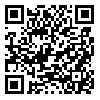دوره 10، شماره 4 - ( 9-1403 )
جلد 10 شماره 4 صفحات 276-269 |
برگشت به فهرست نسخه ها
Download citation:
BibTeX | RIS | EndNote | Medlars | ProCite | Reference Manager | RefWorks
Send citation to:



BibTeX | RIS | EndNote | Medlars | ProCite | Reference Manager | RefWorks
Send citation to:
Dabis H A M, Sachit A, Talib Hameed A. Barriers to Sexual Counseling for Patients With Myocardial Infarction: A Nursing Point of View. JCCNC 2024; 10 (4) :269-276
URL: http://jccnc.iums.ac.ir/article-1-593-fa.html
URL: http://jccnc.iums.ac.ir/article-1-593-fa.html
Barriers to Sexual Counseling for Patients With Myocardial Infarction: A Nursing Point of View. نشریه مراقبت پرستاری مددجو محور. 1403; 10 (4) :269-276
چکیده: (655 مشاهده)
Background: Patients with myocardial infarction (MI) often experience sexual concerns, yet sexual counseling remains underutilized. This study explored barriers to sexual counseling for MI patients from the perspective of nurses working in southern Iraq.
Methods: This cross-sectional study recruited 126 nurses (response rate 89%) from a specialized heart center in 2023. They were selected using convenience sampling. A valid adapted questionnaire assessed perceived barriers related to patients, nurses, and organizations. The obtained data were analyzed with descriptive statistics, analysis of variance, and independent t test using SPSS software, version 27. P≤0.05 was considered significant.
Results: Religious issues (3.01±0.49), confidentiality concerns (2.92±0.55), and patient reluctance to discuss sex (2.87±0.54) were the most significant patient-related barriers. High workload (2.92±0.42), cultural beliefs (2.82±0.51), and nurse discomfort discussing sex (2.79±0.50) were the leading nurse-related barriers. Lack of administrative support (2.81±0.47), feedback mechanisms (2.77±0.51), and unsuitable consultation environment (2.76±0.53) were the primary organizational barriers. No significant relationships were found between the barriers and demographic data.
Conclusion: Religious beliefs, confidentiality concerns, and patient reluctance, along with nurses’ high workload, cultural norms, and discomfort, pose significant barriers to sexual counseling for MI patients in this setting. Addressing these barriers through education, cultural sensitivity training, and organizational support could improve sexual counseling accessibility for MI patients.
Methods: This cross-sectional study recruited 126 nurses (response rate 89%) from a specialized heart center in 2023. They were selected using convenience sampling. A valid adapted questionnaire assessed perceived barriers related to patients, nurses, and organizations. The obtained data were analyzed with descriptive statistics, analysis of variance, and independent t test using SPSS software, version 27. P≤0.05 was considered significant.
Results: Religious issues (3.01±0.49), confidentiality concerns (2.92±0.55), and patient reluctance to discuss sex (2.87±0.54) were the most significant patient-related barriers. High workload (2.92±0.42), cultural beliefs (2.82±0.51), and nurse discomfort discussing sex (2.79±0.50) were the leading nurse-related barriers. Lack of administrative support (2.81±0.47), feedback mechanisms (2.77±0.51), and unsuitable consultation environment (2.76±0.53) were the primary organizational barriers. No significant relationships were found between the barriers and demographic data.
Conclusion: Religious beliefs, confidentiality concerns, and patient reluctance, along with nurses’ high workload, cultural norms, and discomfort, pose significant barriers to sexual counseling for MI patients in this setting. Addressing these barriers through education, cultural sensitivity training, and organizational support could improve sexual counseling accessibility for MI patients.
| بازنشر اطلاعات | |
 |
این مقاله تحت شرایط Creative Commons Attribution-NonCommercial 4.0 International License قابل بازنشر است. |


